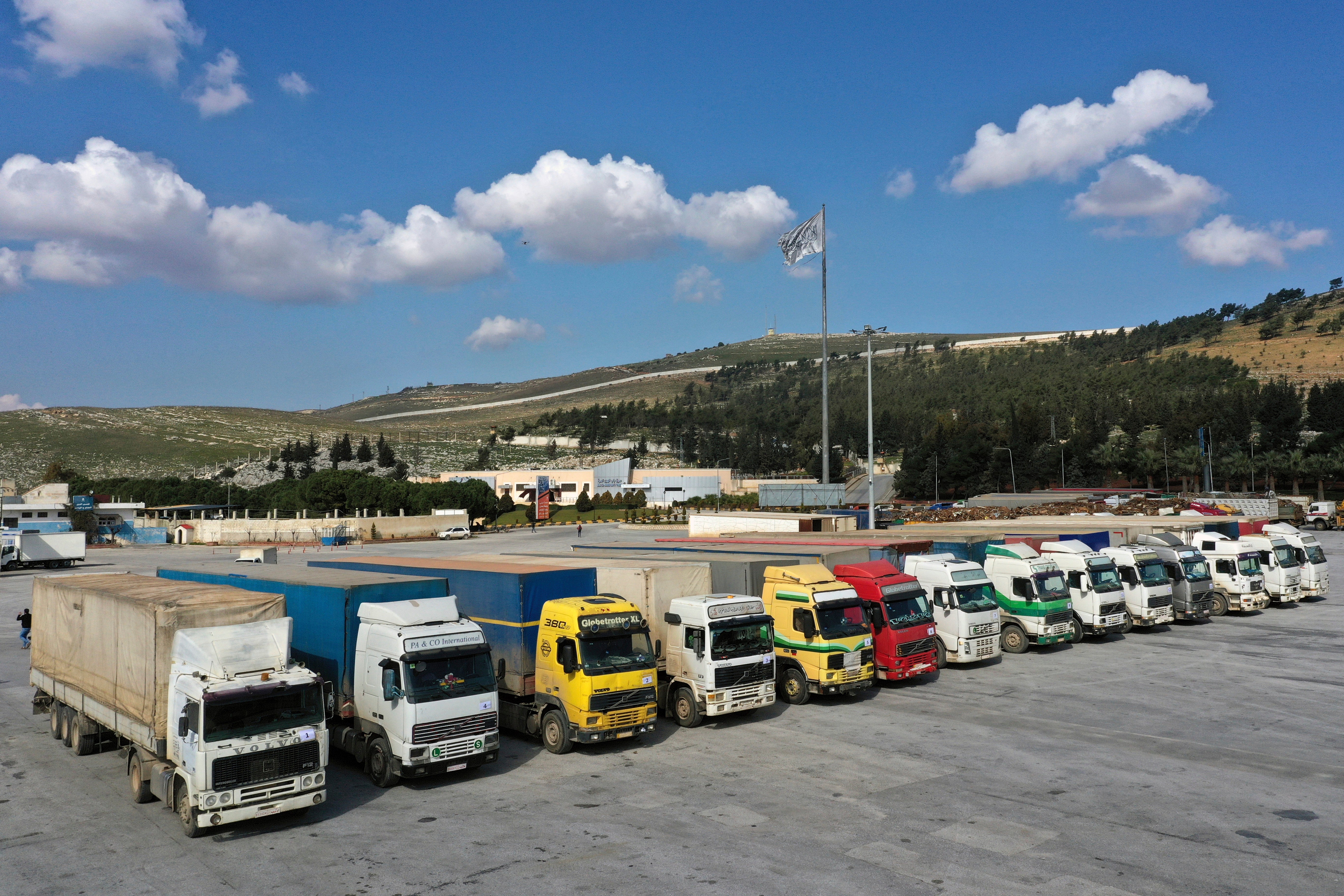Aid to Syria's rebel-held northwest from Turkey certain to continue — but for 6 or 12 months?
The delivery of humanitarian aid to Syria’s rebel-held northwest from neighboring Turkey is virtually certain to get a green light to continue from the U.N. Security Council

The delivery of humanitarian aid to Syria’s rebel-held northwest from neighboring Turkey is virtually certain to get a green light to continue from the U.N. Security Council on Monday — but the big question is for how long.
The council’s current authorization for aid deliveries through the Bab al-Hawa crossing is set to expire Monday, but the council has two rival extension resolutions before it to vote on.
A Russian resolution would continue aid deliveries for six months and a Brazil-Switzerland resolution backed by most council members and Secretary-General Antonio Guterres would authorize a 12-month extension.
The delivery of aid to the area has increased significantly following the devastation caused by the magnitude 7.8 earthquake that ravaged southern Turkey and northwestern Syria on Feb. 8.
Syrian President Bashar Assad opened two additional crossing points from Turkey to increase the flow of assistance to quake victims, and he extended their operation for three months in May until mid-August. But those crossings are not mentioned in either resolution.
Syria’s northwestern province of Idlib is home to some 4 million people, many of whom have been forced from their homes during the 12-year civil war, which has killed nearly a half million people and displaced half the country’s pre-war population of 23 million. Hundreds of thousands of people in Idlib live in tent settlements and rely on aid that comes through the Bab al-Hawa border crossing.
The earthquake caused more than 4,500 deaths in northwest Syria and about 855,000 people had their homes damaged or destroyed, according to the U.N.
U.N. humanitarian chief Martin Griffiths told the Security Council on June 29 that the conflict in Syria has pushed 90% of its people into poverty and that millions face cuts in food aid in July because of a funding shortfall.
He said the $5.4 billion U.N. humanitarian appeal for Syria — the world’s largest — is only 12% funded, meaning that emergency food aid for millions of Syrians could be cut by 40% this month. On Friday, he said the U.N. World Food Program needs $200 million to avoid the food cuts.
The Security Council initially authorized aid deliveries in 2014 from Turkey, Iraq and Jordan through four crossing points into opposition-held areas in Syria. But over the years, Syria’s close ally Russia, backed by China, has reduced the authorized crossings to just Bab al-Hawa from Turkey — and the mandate from a year to six months.
Russia has pushed for more aid to be delivered across front lines within Syria, which would give the Syrian government control over the shipments. It has also pushed for early recovery projects to provide jobs and help the country’s economy.
The Russian draft resolution “underscores the imperative of maintaining unimpeded and sustainable cross-line access from Damascus to all parts of Syria.” It urges stepped up efforts to broaden humanitarian activities to include providing water, sanitation, health, education, electricity, demining and shelter. It also calls for “non-interference of unilateral sanctions in the humanitarian operations in Syria.”
The Brazil-Switzerland draft makes no mention of sanctions. It calls for expanding humanitarian activities but would limit electricity provision to places “essential to restore access to basic services.” On the issue of aid shipments within Syria, it calls on parties to enable deliveries to all parts of the country, “including by providing timely security guarantees to ensure the safe passage of cross-line convoys and humanitarian personnel.”
Bookmark popover
Removed from bookmarks